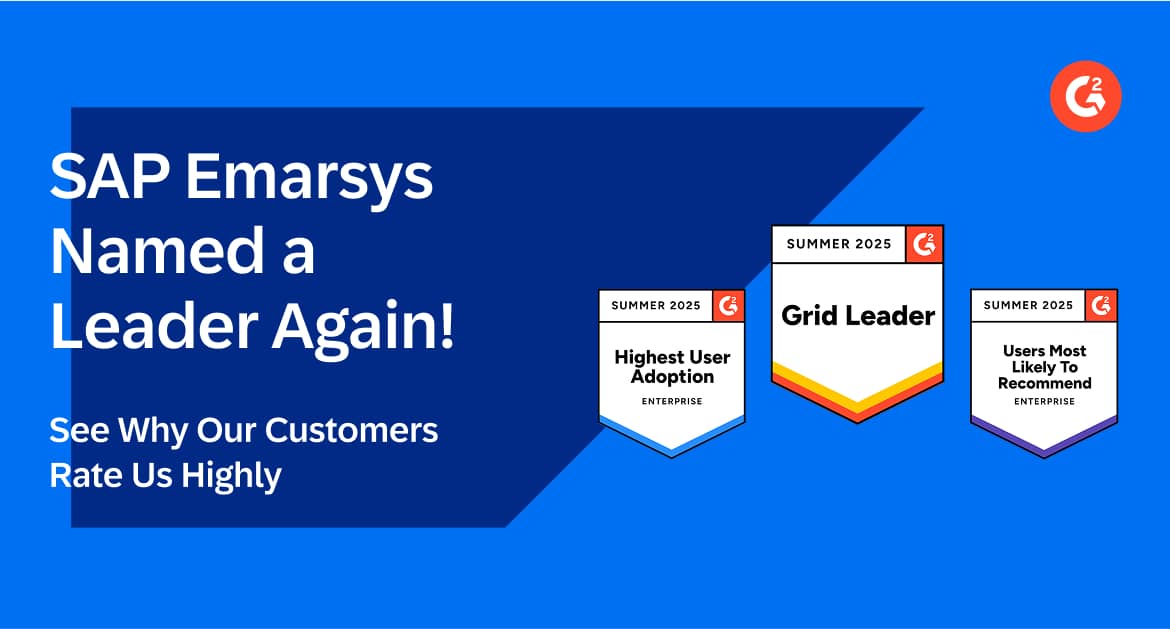The impending doom of cookies has arrived. While Safari and Firefox already block third-party tracking cookies, Google plans to phase out cookies by 2022. Between those two events, Apple will update their latest iOS version in early 2021 to give consumers more control of who gets to use their data and what’s done with it.
While revolutionary for customers, the Apple update profoundly impacts every brand who advertises through Facebook — the Pixel is no more.
Marketers will no longer be able to rely on Facebook’s ad-tracking Pixel for data collection and optimization. Without a way to track performance, customer relationships may suffer — some predict that sales through personalized ads may drop as much as 60% as the update is rolled out and enforced.
$20 billion in annual revenues for third-party advertising is at stake. The industry is up in arms, many believing that brands will be forced to adopt a system that reintroduces inefficiency and less effective targeting. For many years now, marketers have been getting closer to 1:1 personalization than ever before. We’ve developed ways to use data to deliver the experience shoppers want and deserve. In that context, the imminent iOS update seems to be a major setback.
However, before we panic, let’s take a look at what we know so far about the iOS 14 update, how this impacts Facebook advertising as a way to connect with customers, and how brands can prepare for yet another colossal upheaval in digital marketing.
What’s Changing in iOS 14
Data privacy should align with current customer-centric strategies where the brand treats data as the invaluable asset it is. After all, if a customer gives your brand permission to use their data, then they get hyper-personalized interactions every time they shop with you, and your brand can collect all the data necessary to truly personalize the shopping experience. It’s an exchange, one that consumers want.
The GDPR and CCPA are the strongest data permissions models until now, but Apple’s iOS 14 update accelerates the pace of change in data privacy. No longer can a brand simply get a customer’s permission with an OK button and bury the privacy policy in fine print. Customers must now explicitly opt-in to every app and site, and if they opt-out, brands can no longer send them personalized messages or collect the same amount of behavioral data they have up until now.
It’s easy to see why consumers are ecstatic — imagine never seeing an irrelevant popup ad again — but change on this scale will also challenge marketers around the world to adapt new ways of gathering personalization data.
The New Apple Prompt
With the enforcement of Apple’s App Tracking Transparency (ATT) Framework, customers must give explicit permission to every brand’s website and app, including Facebook apps like Instagram, WhatsApp, and any app using the Audience Network.
Customers have two options at the Apple prompt:
- Allow Tracking
- Ask App Not to Track
There will be a similar opt-in for every other app that customers use and every site they visit. If customers opt-out, Facebook may still track some data, at least in the near future, but it will be significantly less data than what we’re used to.

Say Goodbye to IDFA
Brands have relied on Facebook’s Identifier for Advertisers to track customer behavior with a unique ID for every iOS device. Tracking device behavior is central to building a 360-degree view of each customer as they move from one channel to another. With the removal of the IDFA, personalization will be harder.
Eric Seufert, mobile consultant and editor of Mobile Dev Memo, explains what app developers are faced with: “Bumble is a well-established, popular app that people inherently give a lot of data to anyway – it’s a dating app – and even they expect a very low opt-in rate.”
In 2020, when previous iOS versions allowed users to opt-out with “limit ad tracking,” 30% opted-out. In 2021, with an opt-in for each app, some estimate the number of customers who will share data may drop 10%-15% below today’s 70% opt-in rate.
The IDFA is a big part of Facebook’s Audience Network, an advertising network for third-party mobile app developers. Now with iOS 14 requiring these developers to show an opt-in message to every user stating that they want to collect IDFA data, Facebook has announced they will not collect IDFA data through its own apps on iOS 14 devices once the change goes into effect (they will still collect this data for the time being). This severely handicaps developers using the ad network, with some analysts forecasting up to a 50% drop in Audience Network revenue, which could spell the end of the network.
Seufert sums this up: “Basically, Facebook is saying that if the data connection is severed between Audience Network and Facebook’s central servers, where they have all of their profiles, then there’s no way to match people and CPMs drop by half.”
But while the conventional wisdom is that Facebook is a must-have channel, it’s not an optimal engagement channel because it’s already limited in who you can engage and how.
“If we apply IDFA as being the kind of the cookie equivalent in the app world and say if the same thing is to happen in the web world, where we’ve already seen a lot of pressure in Europe especially and now in the U.S. and California around cookies being opt-in, advertising cookies, permissions, tracking cookies, and everything else that goes with it. Now there’s an additional layer of saying ‘Okay, not only are they opt-in, but the length of time that they will operate for is also now going to be a problem.’ Why it’s a big issue for not just Facebook, but for Google as well, is they are walled gardens. Particularly with Facebook. Facebook’s entire advertising model is based around advertising to people inside a closed network. Inside a Facebook, inside an Instagram, inside a Messenger, and what they know is about what you put into your Facebook profile, and whSat you put in Instagram. What they don’t know is anything that happens outside of that app.”
Shorter Attribution Window
Facebook will no longer offer the 28-day campaign run. With iOS 14, brands can only generate data for a seven-day timeframe. A longer run obviously gets a brand better data, and many brands believe that the attribution window changes will decrease revenue by up to 20%.
Former Showpo CMO and e-commerce marketing consultant, Mark Baartse, makes an incredibly important distinction: Revenue won’t be lost, but marketers will have to change the way they track and report on revenue. Some purchases, like in the auto industry, take longer than the maximum 28-day window anyway and won’t be as impacted as other product categories with shorter windows.
Limited Events Tracking
Facebook will limit data tracking to a maximum of eight events per campaign. If you launch one with more than eight events, the campaign will be paused. Overall, that means you will track fewer events, and less data blurs your view of the customer. You’ll also have to think about which events are the most valuable to your brand, and until solutions appear, optimization may be more difficult for a while.
Less Data Collected, Less Reporting, and More Silos
The removal of the Pixel will reduce the amount of data your brand collects for each campaign. Brands will have less visibility into whether customers see relevant ads, and that makes judging performance extremely hard.
Vital to optimization, iOS 14 update reporting will be less comprehensive and more sporadic — some reporting may be delayed by 24 to 48 hours.
These changes may reintroduce siloed data, one of the biggest obstacles to marketing success. With less data captured and fewer reliable ways to measure performance, brands won’t be able to match up and merge all the data from the other sources they’ve used in the past. Complicating matters, as brands try to adapt to these changes, IT departments will inevitably have to customize new workflows introducing further data compatibility issues.
The bottom line is that the iOS14 update deeply affects a brand’s ability to personalize and engage customers. Last February, the Interactive Advertising Bureau estimated that the eradication of cookies could “mean a loss of $32 billion to $39 billion in ad revenue on the Open Web by 2025, with more than 90% of those revenues shifting to walled gardens.”
Who Does the iOS 14 Update Affect?
Short answer: EVERYBODY who advertises on Facebook. With Facebook ads comprising an estimated 70%-75% of all impressions delivered to iOS devices, the update will affect an enormous number of brands who rely on it today.
Similar to GDPR, iOS 14 changes how brands can use personalized targeting. If customers don’t opt-in, brands will see some data disappear and can only regain access if the customer opts-in at some later time.
Mobile Websites
With the exit of the Pixel and other changes to the Conversions API, mobile web journeys will be significantly affected and may generate less usable data for each campaign. So far, you’ll find two new protocols to address this.
PCM vs. AEM
Apple created a new protocol for web attribution called Private Click Measurement (PCM) with these restrictions:
- Less data can be shared across businesses and platforms.
- App-to-web conversion measurement will no longer be available.
- PCM does not support cross-domain measurement.
Facebook’s response is the Aggregated Event Measurement (AEM) protocol which aims to solve shortfalls by continuing to support app-to-web conversion measurement and flexible options for other platform privacy models.
It’s not clear just yet what all AEM will offer, but what is clear is that the eight-event limit will force advertisers to reconfigure setup, targeting, optimization, and analytics. You’ll also need to learn how to use new tools from Facebook and other platforms (when they become available).
Global Brands with Multiple Domains
A brand that has stores in separate regions that use different domains will no longer benefit from the consolidated reporting of Pixel tracking. Each domain will now have to create its own workflow, and that may silo a brand’s data among different regional offices.
Working with Agencies and Partners
Losing the Pixel means your brand may have more trouble sharing valuable data with ad agencies and partners. In many cases, these third parties will have to share a great deal of information about individual events (eight max) with no guarantee of reaching relevant customers.
Mobile Apps
Executing personalized targeting will be more difficult for app developers. Previously, developers often got a lot out of a small budget and reached a small but dedicated audience. Decreasing the amount of customer data collected puts that model in jeopardy.
Brands who leverage Facebook SDK for mobile app reporting will now have to adopt SKAdNetwork API (Apple’s new measurement protocol) for app conversion campaigns. The new API has its drawbacks: Data collection will be more restricted, aggregated, and/or delayed which manifests as less depth, less accuracy, and less timely reporting.
Journalist Walt Mossberg puts a brighter spin on it: “In the forthcoming version of iOS, Apple is simply switching from an obscure opt-out system for apps that want to track users across the web to an explicit opt-in system. At last! In my view, we should have a law requiring explicit opt-ins for the collection of personal data.”
Small and Medium Businesses
Amidst a 2020 defined by massive change and challenges, many small brands have continued to grow their customer base by optimizing the online experience. A Deloitte study found that since the beginning of the pandemic, 44% of American SMBs started or increased their use of targeted advertising through social media, and these brands were twice as likely to report revenue gains.
Facebook ads are vital for small businesses, and while large enterprises can afford to implement a registration wall or a subscription model, most small businesses cannot. Brands who rely on Facebook for performance reporting will be especially impacted by the iOS 14 update.
However, the world is not ending. There are actions you can take now to adapt to enormous change in the short run and transform your digital marketing to gather better data, better behavioral context, and better models for measuring and reporting.
Key Actions Brands Need to Take
The single most important thing you can do right now is to completely plot out your value exchange with customers. When they give you permission to use their data, what are your customers getting in return? Is it real-time personalization? Loyalty perks? Seamless customer experience from online to in-store? The value exchange will inform all the other actions your brand takes in adapting to iOS 14 data privacy changes.
Actions to Take Now
Regardless of how iOS 14 rolls out, your brand should complete the following tasks as soon as possible:
- For mobile web, verify your domain. Plan on configuring domain verification in Event Configuration inside Facebook’s Business Manager.
- For mobile apps, make sure you’re familiar with Facebook’s best practices. Review Facebook’s data ingestion model in their developer’s blog post to ensure your brand complies with Apple’s App Store Connect privacy policy.
- For apps, update your Facebook SDK to version 8.1 or higher.
Actions to Prepare For
Before Apple rolls out iOS 14 in early 2021, decide how your brand will make the transition in the following areas:
Key Web Preparation
- Prioritize the top eight events you want to measure per domain. Choose carefully. If you say “purchase” is the #1 event, you may lose data generated in other events that might be more valuable to your brand, like browsing behavior, recommendations, and abandoned carts.
- Understand how the attribution changes what you measure. Now if a customer opts-out, Facebook will only gather data on one event after a customer clicks your ad. Adjust your attribution windows accordingly and update automated rules.
- Test your ideas. With optimization becoming harder, decide which strategies will work best and test them.
Key App Preparation
- Define your conversion schema. If your brand uses the Facebook SDK & App Events API, think about how you’re going to reconfigure your conversion schema to handle the update.
- Learn to use the Advertisers Tracking Enabled flag. If you use app-based business tools (like FB SDK, App Events API, or MMP SDKs), you need to shift over to leveraging the Advertisers Tracking Enabled flag to tell Facebook to restrict customer data on a per-event basis. If you use just the App Events API, anticipate integrating SKAN API in the Events Manager instructions.
- Account for install campaigns. Brands need to operate all iOS 14 app install campaigns inside one ad account per app. Additionally, you can only have nine campaigns per app and five ad sets per campaign with the same optimization type.
Facebook’s Response
Once Apple delayed the release of the update, Facebook changed course on phasing out IDFA and will now “continue collecting IDFA on iOS 14 in an attempt to reduce unnecessary disruption to our customers’ businesses”:
- Advertisers who use web-based business tools will still get limited measurement of some web events through Facebook’s Aggregated Event Measurement (AEM) protocol.
- Advertisers using app-based business tools will still receive support from Facebook for Apple’s SKAdNetwork API.
Redefine Attribution
As inconvenient as the timing of the iOS 14 update is, this is an opportunity for marketers to make a critical shift that has been needed for many years now.
The attribution models used in Facebook have never delivered the analysis marketers need to close the loop on 1:1 marketing. We’ve been so obsessed with Facebook ad campaign metrics that we haven’t really evaluated if we’re measuring the things that best reflect campaign success.
Baartse makes the case for redefining attribution: “All attribution is just an estimate and far from perfect. They are arbitrary numbers. If someone makes a purchase after eight days, they still made the purchase. It’s just reported differently. So, customer behavior doesn’t change, simply the way we report on it.”
Henry Innis, Managing Partner at Mutiny, puts it more bluntly. “We should be asking ourselves why we are talking about attribution modelling at all; it’s bad mathematics,” he says. “We should be looking at moving towards ranking and contribution models.”
Innis suggests that the advertising industry has been “hoodwinked” by the idea of attribution. “With attribution, advertisers will argue or fight over the role they played in the sales conversion — but you could have seen that same message across 15 different sources, with no way to rank the impact they had on the purchase.”
The reality is that Facebook doesn’t actually allow brands to market to customers on a 1:1 basis. You can’t use recommendations, and the only personalization you can do is with Facebook’s proprietary tools. It’s just not the greatest channel for engaging customers in the long run.
Re-Evaluate What You Measure and Innovate
Technology will evolve. Baartse believes we’ll see solutions that are truly better than what we have now.
“The solution to these cookie problems is server-side technology. When you look at the whole thing about cookies and tracking Pixels and stuff like that, it’s actually a great big, really quite unpleasant hack when you think about it from a technical perspective. Our conversion, our measurement of conversion is reliant on a piece of JavaScript. I’m a server, and I say, ‘Alex, you’re a web browser, and here is a piece of JavaScript. I’m going to trust you to run this exactly as I intended. I’m going to trust you not to put in an ad blocker. I’m going to trust you not to turn off JavaScript. I’m going to trust you to have a fast internet connection. I’m going to trust you not to close your browser window too quickly.”
Your brand will have to rethink the way you identify customers. For example, as the Australian retailer Cue Clothing was adapting to 2020’s rise of e-commerce, they discovered that streamlining checkout improved their ability to identify 80% of their customers.
“So it’s quite easy, particularly when you’re looking at, you know, a majority of your customers coming through and transacting on mobile. It’s critical to have that onboarding piece there. And then, through to check out, again you’re either asking the customer to enter the payment details or give them the option to use their saved details. So, it’s no different to guest checkout, except I don’t even have to ask them the question. So, straight away we found that the friction’s taken away from checkout by even asking them whether they’re returning or not. Streamline that process and what that also means is by having 100% of the customers known online, the customers that do shopping in-store, they’re familiar with the fact, well, in most cases, if they have shopped online, they’re definitely a customer already, a known customer, those that have shopped online. So that’s been pivotal.”
Final Thoughts
Data privacy has taken a long time to materialize. iOS 14 is making it happen faster than expected and most immediately inside Facebook. Brands will track fewer customers on mobile devices and collect less data. Targeting, data analysis, and optimization will be a little harder at first.
Of course, if your customers using iOS devices opt-in to Apple, your website, and your app, everything’s fine. But we’ve seen how unpredictable digital marketing has been in 2020. It’s wise to plan how you’ll start dealing with the impact of iOS 14 today.
Perhaps we’ll see dependable solutions that identify customers across devices. Perhaps machine learning will be further leveraged to improve contextual marketing.
The near term will be challenging, but overall brands are going to discover better ways to engage customers, find less restricted ways to personalize across every channel, and will create improved shopping experiences in exchange for first-party data.
If those customers just opt-in…
Handpicked Related Content:














